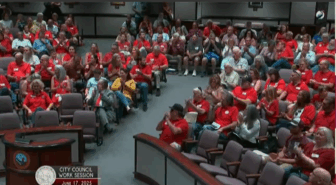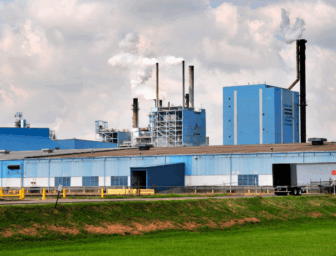For Immediate Release
March 27, 2013
Contact:
Kelly Trout, 240-396-2022, kelly@chesapeakeclimate.org
Tom Carlson, 651-587-0730, tom@chesapeakeclimate.org
Environmental leaders call SB684/HB1102 a common-sense, must-pass bill that will close a costly loophole in Maryland’s clean electricity standard while creating jobs and reducing toxic air and climate pollution
ANNAPOLIS—Maryland’s environmental community is calling on state senators to seize the opportunity to dramatically improve the state’s core clean electricity law today when SB 684, the so-called “black liquor” bill, gets its third reading on the Senate floor.
The bill would close a massive loophole in the state’s Renewable Portfolio Standard (RPS) law that is shoveling millions in Maryland ratepayer dollars to old, out-of-state paper mills for burning “black liquor,” a carbon-intensive waste byproduct. After a critical compromise was struck that will protect in perpetuity the only Maryland paper mill that burns black liquor, Luke Mill, SB 684 passed the Senate Finance committee by a bipartisan, 9-2 vote.
“This is a common-sense, win-win bill for the state’s consumers, environment and jobs,” said Jen Brock-Cancellieri, Deputy Director of the Maryland League of Conservation Voters. “SB 684 will ensure that our renewable energy dollars are spent on new clean energy projects that create jobs and improve our health and climate, as lawmakers intended when they passed the original RPS law.”
SB 684, sponsored by Senator Rob Garagiola (District 15), would phase out old, out-of-state paper mills and other power plants that burn inefficient “biomass” products under the RPS law. The compromise amendment ensures Maryland’s Luke Mill will retain its subsidy for as long as the 125-year-old facility continues to operate. A companion bill, HB 1102, sponsored by Delegate John Olszewski (District 6), is pending action by the House Economic Matters Committee.
“This simple fix could spur 1,200 megawatts of new, job-creating clean energy and reduce climate pollution by the equivalent of taking 275,000 cars off the road every year,” said Christine Hill, Conservation and Policy Representative at the Maryland Sierra Club. “No other bill remaining before the 2013 General Assembly offers as big a boost for our state’s health, climate and economy.”
According to analyses, if SB 684 passes, 15-30 percent more of Maryland’s renewable energy dollars will flow to new clean energy generation by 2020 with no impact to ratepayers, as money currently spent on old facilities burning black liquor and wood waste is simply redirected to new facilities like land-based wind farms. Because of the current loophole, in 2011, nearly half of Maryland’s renewable energy dollars—$3.8 million—went to pay for the burning of black liquor as well as wood waste, instead of new clean energy. These waste byproducts emit toxic air and carbon emissions at levels on par with or greater than fossil fuels when burned.
“By passing this bill, Maryland lawmakers will reduce air and climate pollution, while creating thousands of well-paid, new clean-energy jobs—at virtually no cost to ratepayers,” said Tom Carlson, Maryland Campaign Director at the Chesapeake Climate Action Network. “Including its iron-clad protections for Luke Mill, this bill is a guaranteed good for all Marylanders.”
Click here for more information on key provisions of SB 684 and groups supporting the bill.
Click here for more information on how SB 684 will protect and create jobs in Maryland.
###




